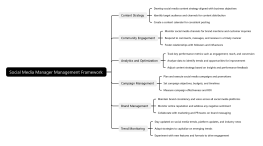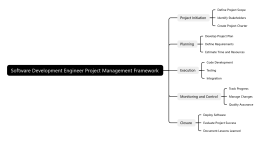
Enterprise Strategic Planning Framework
0 Report
The Enterprise Strategic Planning Framework mind map provides a comprehensive approach to strategic planning for businesses. It begins with an Environmental Analysis, utilizing PESTLE, SWOT, and Competitive Analysis to understand the external and internal landscapes. Vision and Mission Development is crucial, involving the definition of vision and mission statements and the establishment of core values. Goal Setting is segmented into long-term goals, medium-term objectives, and short-term targets, ensuring a structured path forward. Strategy Formulation employs models like Porter's Generic Strategies, Ansoff Matrix, BCG Matrix, and Blue Ocean Strategy to create robust strategic plans. Effective Resource Allocation covers financial, human, technological, and physical resources. The Implementation Plan details action plans, timelines, milestones, and a Responsibility Assignment Matrix (RAM) to ensure accountability. Performance Measurement uses Key Performance Indicators (KPIs), Balanced Scorecard, and Benchmarking to track progress. Monitoring and Evaluation involve regular progress reviews, performance analysis, and feedback mechanisms. Finally, Adaptation and Continuous Improvement focus on change management, agile practices, and lessons learned to keep the strategy dynamic and responsive to changes. This framework ensures a holistic and adaptable approach to strategic planning, enhancing organizational efficiency and effectiveness.
Related Recommendations
Other works by the author
Outline/Content
See more
Environmental Analysis
PESTLE Analysis
SWOT Analysis
Competitive Analysis
Vision and Mission Development
Define Vision Statement
Develop Mission Statement
Establish Core Values
Goal Setting
Long-Term Goals
Medium-Term Objectives
Short-Term Targets
Strategy Formulation
Porter's Generic Strategies
Ansoff Matrix
BCG Matrix
Blue Ocean Strategy
Resource Allocation
Financial Resources
Human Resources
Technological Resources
Physical Resources
Implementation Plan
Action Plans
Timeline and Milestones
Responsibility Assignment Matrix (RAM)
Performance Measurement
Key Performance Indicators (KPIs)
Balanced Scorecard
Benchmarking
Monitoring and Evaluation
Regular Progress Reviews
Performance Analysis
Feedback Mechanisms
Adaptation and Continuous Improvement
Change Management
Agile Practices
Lessons Learned
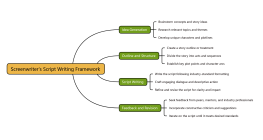
Collect
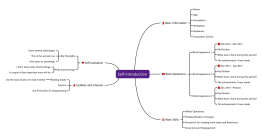
Collect
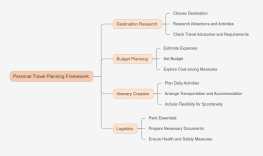
Collect
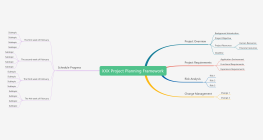
Collect
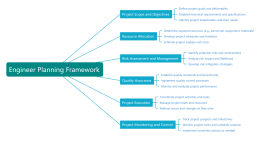
Collect
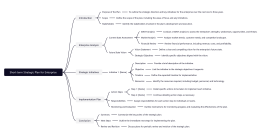
Collect

0 Comments
Next Page
